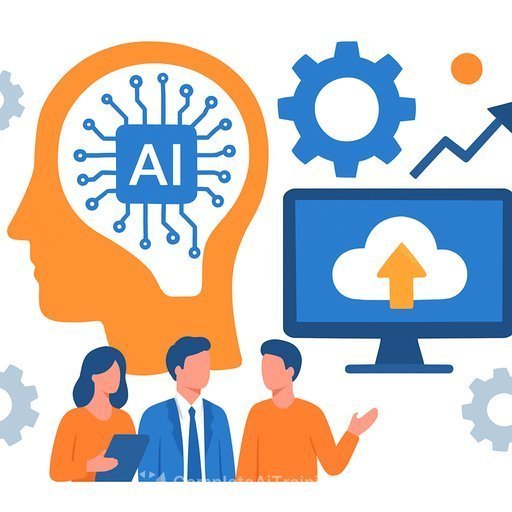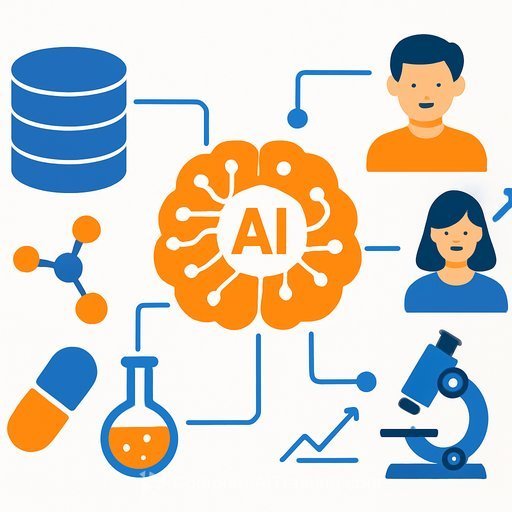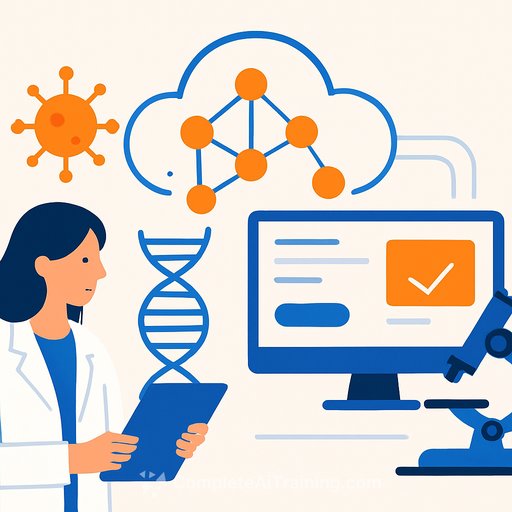AI "scientist" claims months of research in hours: what Kosmos could mean for your lab
Could an autonomous AI actually push research forward, not just summarize it? Edison Scientific says yes. Their system, Kosmos, reportedly runs for hours and delivers work they claim would take humans months, including several "novel contributions."
Kosmos isn't a single model; it's a set of agents that analyze datasets and trawl the literature to propose ideas and plans. "We've been working on building an AI scientist for about two years now," says Sam Rodriques at Edison Scientific. "And the limitation with AI scientists that have been released to date is always in kind of the complexity of the ideas that they can come up with."
What an "AI scientist" like Kosmos likely does under the hood
- Literature search, ranking, and clustering to map topics and gaps
- Claim extraction with citation graphs and evidence scoring
- Hypothesis generation guided by priors, heuristics, or prompts
- Data wrangling, statistical analysis, and figure generation
- Automated experiment planning and reagent/equipment lookup
- Draft writing for methods, results, and limitations with inline citations
In short: persistent agent loops that plan, call tools, check intermediate results, and iterate. The promise is speed. The risk is false confidence.
Why many scientists remain skeptical
- Hallucinated claims and mis-citations still happen, especially under long autonomous runs
- Cherry-picked results and p-hacking can slip in without pre-specification and audit trails
- Reproducibility: can others get the same outputs from the same inputs and versioned agents?
- Benchmark leakage or contamination can inflate "novelty" and performance metrics
- Compute cost and wall-clock time are easy to underreport without transparent logs
- Licensing/IP issues in training data and literature can create downstream conflicts
How to evaluate Kosmos (or any AI scientist) in your group
- Define success upfront: time saved, effect sizes, error rates, acceptance at review, and re-run reproducibility
- Use a sandbox: one well-understood project with clean data and a realistic, time-boxed scope
- Hold out a blind test set and preregister analysis plans before any AI-assisted exploration
- Require full audit logs: prompts, tool calls, model versions, parameters, and timestamps
- Demand code export and environment capture (containers or notebooks) for exact reruns
- Run ablations: human-only, AI-only, and human+AI with the same constraints
- Institute human sign-off for claims, stats, and citations before anything leaves the lab
Minimum documentation you should ask the vendor for
- Versioning: model IDs, agent graphs, tool lists, retrieval corpora, and update cadence
- Data provenance: what sources are indexed, how often they refresh, and de-duplication policy
- Training boundaries: any fine-tuning on proprietary or paywalled content
- IP and licensing: how outputs can be used, and how third-party content is handled
- Security: data isolation, encryption, retention windows, and export controls
- Safety: rate limits, uncertainty estimation, and how the system flags low-confidence steps
Good use cases right now
- Literature triage with citation-backed summaries and contradiction tracing
- Exploratory data analysis and code scaffolding you can quickly audit
- Hypothesis enumeration with rationale and ranked evidence
- Protocol comparison and risk checklists for experimental planning
- Draft figures, methods, and reproducibility sections to speed writing
What would count as "novel contributions" in practice
- Pre-registered hypotheses that survive peer review without major retraction of claims
- Independent replication with shared data, code, and environment
- Clear causal insight or a method that generalizes beyond a single dataset
- Documented time saved without quality trade-offs (measured across multiple teams)
A simple 30-day pilot plan
- Week 1: Baseline. Run a small study the usual way; log hours, issues, and outcomes.
- Week 2: Configure Kosmos (or alternative) with your corpora and tools; set strict guardrails.
- Week 3: Parallel runs. Human-only vs. AI-assisted on the same question with a blind holdout.
- Week 4: Compare effect sizes, error rates, review quality, and total hours. Decide next steps.
If you rely on literature synthesis, align your process with the PRISMA guidelines for systematic reviews. They help structure search, screening, and reporting, which is vital when an AI agent is doing the heavy lifting. See the PRISMA statement here.
For governance, map your deployment to the NIST AI Risk Management Framework to keep risks and controls explicit across the lifecycle. Overview here.
Want structured upskilling on agent workflows, data analysis, and evaluation practices? Browse research-relevant tracks at Complete AI Training.
Bottom line: Kosmos and similar systems may compress parts of the research cycle, but claims of "months in hours" only matter if the outputs replicate, survive review, and save time without hidden costs. Treat these tools as ambitious research assistants with strict oversight, not autonomous authors of truth.
Your membership also unlocks:






